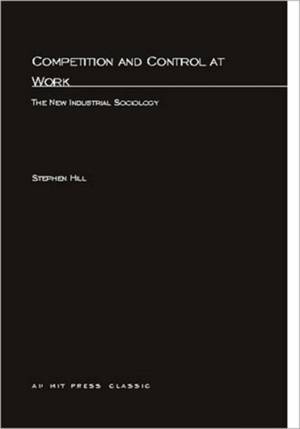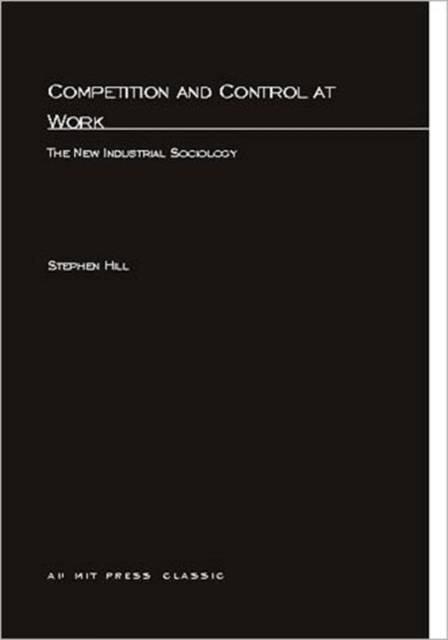
- Afhalen na 1 uur in een winkel met voorraad
- Gratis thuislevering in België vanaf € 30
- Ruim aanbod met 7 miljoen producten
- Afhalen na 1 uur in een winkel met voorraad
- Gratis thuislevering in België vanaf € 30
- Ruim aanbod met 7 miljoen producten
Omschrijving
Taking the underlying competition of interests between worker and employer as his starting point, Hill documents the evolution of new forms of managerial organization designed to enhance and legitimate the employer's control over the worker.
"The central problem facing modern business is the impossibility of abolishing the conditions which create conflicts in the workplace without destroying the present form of the economy." This is the author's controversial conclusion to a wide-ranging study that draws on historical and comparative studies of labor and managerial organization, modern theoretical and empirical accounts of class structure and the role of the state in the economy, the economic literature dealing with trade unions, labor markets, and certain aspects of economic theory. Taking the underlying competition of interests between worker and employer as his starting point, Hill documents the evolution of new forms of managerial organization designed to enhance and legitimate the employer's control over the worker. A central theme is the precarious nature of the industrial peace given the ineradicable opposition of interests which characterizes most modern forms of economic organizations. The major part of the book places discussions of empirical material, particularly new evidence on European industry and comparative material on the United States and Japan, within a coherent theoretical framework.
The book inaugurates The MIT Press Series on Organization Studies, edited by John Van Maanen, Professor of Organizational Psychology and Management, Sloan School, MIT.
Specificaties
Betrokkenen
- Auteur(s):
- Uitgeverij:
Inhoud
- Aantal bladzijden:
- 288
- Taal:
- Engels
- Reeks:
Eigenschappen
- Productcode (EAN):
- 9780262580533
- Verschijningsdatum:
- 9/12/1981
- Uitvoering:
- Paperback
- Formaat:
- Trade paperback (VS)
- Afmetingen:
- 135 mm x 201 mm
- Gewicht:
- 317 g

Alleen bij Standaard Boekhandel
Beoordelingen
We publiceren alleen reviews die voldoen aan de voorwaarden voor reviews. Bekijk onze voorwaarden voor reviews.











